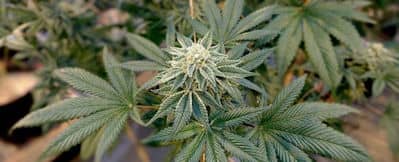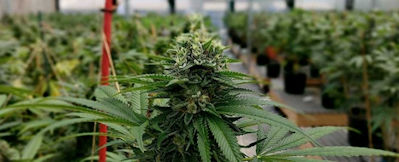Growing Cannabis In Washington – Where To Begin

Growing cannabis in Washington can be more than just good fun, it can be a lucrative business venture too. Once you tackle the local regulations and get your state license, you can start growing marijuana indoors or outdoors. Although some strains thrive in indoor settings, the Eastern Washington area is particularly favorable for outdoor growing. The local legislation issues different licenses for growers, processors, and retailers. So if you are an entrepreneur or are planning to start a cannabis business in Washington, read on.
Here is some important information you need to know before you start growing cannabis in Washington.
Is Cannabis Legal in Washington State?
Yes, it is! Surprising to many, the State of Washington was actually the first state to legalize recreational cannabis in the U.S. Many people think California was the pioneer leading the way, but in reality, Washington was the silent winner! Recreational marijuana first became legal in December 2012.
Medical marijuana has been allowed since 1998, but a medical necessity defense was recognized authorizing possession as early as 1979. Washington has a booming legal cannabis industry, and the tax revenue is rapidly growing while also helping the local economy. However, unlike other states where recreational or medicinal marijuana is legal, you can’t grow for personal use in Washington. Although nowadays, any adult over the age of 21 can legally purchase marijuana, growing cannabis in Washington is only possible if you hold a state license.

You can only grow cannabis in Washington with a state license.
Can I Buy Cannabis Seeds in Washington State?
You can only purchase marijuana seeds in Washington State if you are a state-licensed business. If you’re not a licensed grower, you can’t buy seeds, cannabis clones, plants, and you also can’t purchase them in other states and transport them back to Washington. So if you were on the fence about whether to apply for your licence or not, now you know it’s worth it to stay on the right side of the law.
How to Get a Grow License in Washington
The Washington State Liquor and Cannabis Board (WSLCB) offers different licenses for businesses interested in growing, processing, retailing, transporting, and researching. You can hold a growing and processing license simultaneously, but you can’t have a retailing license. Growers and processing facilities are only allowed to sell cannabis to retailers and not to the final consumer.
Unfortunately, the application process for getting a producer, processor, or retailer license in Washington is currently closed. According to the board, there is no plan for opening an application window soon. Although you can’t buy or transfer a producer license, you can purchase or invest in a business that currently holds a valid license. You can also organize your business plan, find a suitable location for your facility, get funding, and get everything ready for when the WSLCB starts accepting applications.
Whether you choose to acquire an already licensed business or want to get prepare for the license application, there are a couple of documents you’ll need. Here’s the information that you must present:
- Criminal history check for applicant, investors, owners, and spouses,
- Proof that all business members have been residents in Washington for at least six months before the application,
- If you’re part of a business entity, it must have been formed in Washington,
- Government-issued identification for the applicant, investors, owners, and spouses,
- Financial statements, bank statements, and tax returns.
All business members must have been Washington residents for at least six months. If that’s an issue for your business, you may want to consider investing elsewhere. Applying for a cannabis license in California, for example, is a little less of a headache.
The growers’ licenses in Washington are divided into three different tiers, depending on the your facility’s square footage. If the operation has under 2,000 square feet, it will be in tier one. A facility with square footage between 2,000 and 10,000 will fit under tier two. Tier three encompasses operations sized from 10,000 to 30,000 square feet.

Growers’ licenses are divided into different tiers depending on the facility square footage.
A producer license must contain detailed information such as traceability, security, employee training and qualifications, as well as plans for the destruction of waste, protocols for testing, detailed descriptions of the growing areas, and operation plans. A new application costs $1381, and there’s a $250 non-refundable fee. If you plan to purchase an existing licensed business, you must pay a $75 fee and fill out the form Change in Governing People, Percentage Owned and/or Stock/Unit Ownership.
Once You’ve Got Your License, How to Start Growing Cannabis
The WSLCB has some regulations in place regarding how you can grow cannabis in Washington. For indoor growing, you must have a facility that is fully enclosed and secure. If you opt for a greenhouse, it must have a roof, rigid walls, and secured doors. A non-rigid greenhouse counts as outdoor produce, and it must be protected from public sight by a wall that is at least eight feet high.
Some security requirements should be included according to the state law. The safety measures include alarm systems, surveillance cameras, identity badges for employees and visitors, and traceability records. You must also have samples for buyers, for testing, sale records, and excise tax records. Ensure that everyone involved in transporting your product holds a marijuana transportation license with the WSLCB, which costs $250.
Final Thoughts
The path for obtaining a cannabis business license in the State of Washington is undoubtedly a windy one. However, don’t let this detain you from starting a cannabis business that can positively impact thousands of lives. Make sure you comply with the local municipality, state, and federal regulations to avoid any unnecessary headaches.
Cannabis News is a space dedicated to discussing everything related to marijuana growing, culture, legislation, and more. This information is curated by Homegrown Nursery, your source for top-shelf cannabis clones in California.
